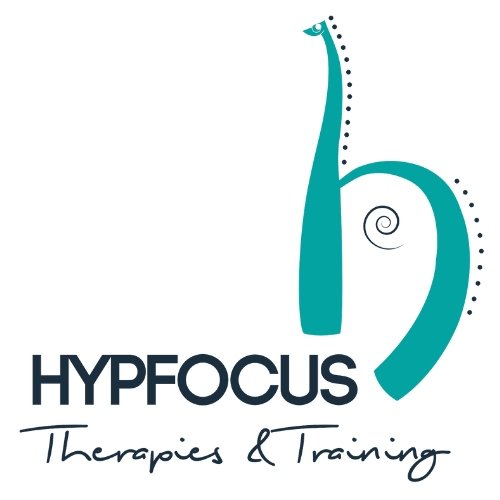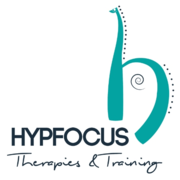Pre-Competition Mental Preparation Tips
Stepping into competition mode isn't just about how many hours you've trained or how perfect your technique is. The mental side of sport plays just as big a role. From dealing with pressure to bouncing back after a setback, your headspace can make or break your performance on the day. That’s why taking time to mentally prepare before a competition matters.
Many athletes get caught up in drills, gear checks, and run-throughs, but forget to check in with where their mind’s at. Whether you compete locally around Melbourne or step onto a bigger stage, setting a strong mental foundation helps reduce nerves and build confidence. And the best part is mental preparation is a skill you can build, like strength or endurance.
Mental Toughness: The Key To Pre-Competition Success
Mental toughness isn’t about acting tough or pretending everything’s fine. It’s about knowing how to stay focused, calm and ready—even when things are uncertain. Whether you're starting a race or walking onto the field, that moment just before it all kicks off can be intense. Thoughts can race, your body might tense up, and doubts can sneak in fast.
Building mental toughness means you're better able to handle those moments. You're clearer on your goal and more likely to stay composed under pressure. It’s less about talent and more about how well you manage your thoughts and emotional responses. Over time, this improves your belief in yourself and your ability to recover from setbacks without losing momentum.
Here are a few signs you’re developing mental strength:
1. You stay focused on what you can control—like your routine—not what others are doing.
2. You know how to come back from distractions and re-centre quickly.
3. You don’t let mistakes derail the rest of your performance.
4. You practise self-kindness instead of harsh criticism after minor errors.
A mentally strong athlete isn’t fearless—they’ve developed tools for handling fear, doubt, or stress. Confidence doesn’t always need to be loud either. Sometimes it’s quiet consistency—steady breathing, sticking to your process, and letting go of overthinking.
Visualisation Techniques For Athletes
Visualisation is where mental prep gets hands-on. It allows athletes to mentally rehearse parts of their performance. When done with focus, it's like building a highlight reel in advance, training your brain to view the competition moment as familiar rather than threatening.
Athletes often already visualise without realising it. They picture crossing the finish line or making the perfect move. But for this to be most effective, it needs to be done in detail. That detail helps the brain treat it like a real experience.
To get started with your own visualisation process:
1. Find a quiet spot where you won’t be interrupted.
2. Close your eyes and breathe slowly. Picture the setting—what do you notice? Think about the venue, your gear, the environment.
3. Move into imagining the actual event. See yourself starting confidently and calmly.
4. Visualise managing stress well—overcoming an error or keeping rhythm during key moments.
5. See the end clearly—finishing strong, walking off knowing you gave your best, and feeling proud.
Include more than just visuals. Think about the sounds around you, the way your muscles feel, or the words you say to yourself. The richer the scene, the better your brain locks it in.
Making visualisation part of your training routine increases its impact. Just five minutes a day during the week before a competition can lead to better outcomes without needing major effort.
The Role Of Relaxation And Mindfulness In Sport
When nerves take over on competition day, relaxation is usually the first thing to go. Breathing gets shallow, muscles tighten, and focus shifts toward what might go wrong. That’s when returning to basic grounding tools like mindfulness makes a big difference.
Being grounded in your body helps bring attention back to what matters—this moment. One simple breathing method is box breathing: inhale through the nose for four counts, hold for four, exhale through the mouth for four, and hold again for four. Repeat a few times. It slows your system down and gives your mind something else to focus on.
Mindfulness isn’t about clearing your mind or zoning out. It’s about connecting to what’s happening right now—what your body feels, what you hear, and how you’re moving. That awareness helps stop your thoughts from running one step ahead.
Here are a few quick mindfulness tips for before competition:
1. Do a one-minute body scan shortly after waking. Notice tension and breathe into those spots.
2. Slow down your preparation just a little. Treat it like part of your performance rhythm.
3. Keep your focus on current actions rather than the results—each move, each breath, each step.
These small changes have a big impact. They sharpen focus and calm the body enough to let all your preparation come through. Even during a packed competition schedule, building in a moment of pause can set the tone for everything that follows.
Using Hypnotherapy For Sports Performance
Sometimes, mental roadblocks show up again and again—despite hours of training. For athletes dealing with recurring performance anxiety or difficulty getting into the right mental state, hypnotherapy can offer an added layer of preparation. It works with your mind’s habits and reactions rather than against them.
Hypnotherapy, when delivered by trained professionals, can help athletes rewire those internal patterns that lead to nervousness, self-doubt or stuck routines. This part of the mind doesn’t always respond to reasoning. That’s why it often takes more than positive self-talk to shift a mindset.
For Melbourne-based athletes, Hypfocus offers customised hypnotherapy sessions designed to support sports performance. Sessions can help address issues like:
1. Creating calm and focus before an event or high-stakes performance
2. Introducing new mental patterns that encourage confidence
3. Letting go of past performance fears or limiting beliefs
4. Developing a cue or phrase that triggers a relaxed, focused state
One athlete might learn how to feel steady just before their race starts, replacing anxious patterns with trust in their body and training. With repetition, the shift becomes automatic, not something they need to try hard to remember.
Hypnotherapy won’t make you immune to pressure—but it supports you in changing how you respond to it. For many Melbourne athletes, integrating this work has led to meaningful improvements that other methods hadn’t unlocked.
Creating A Personalized Pre-Competition Routine
Having a consistent routine before sports competitions can be a game-changer. It creates a series of cues your brain uses to switch from everyday life to performance readiness. The routine doesn’t need to be long or complicated—it just needs to feel right for you and fit your sport.
The main idea is repetition. The more familiar the steps, the more confidently your body and mind follow. Over time, this predictability reduces mental static and allows space for focus.
Here’s a simple outline to build on:
1. Wake up at a consistent time and eat a familiar pre-event meal
2. Do a short stretch or warm-up session to physically prepare
3. Include a few rounds of slow, focused breathing
4. Spend five to ten minutes on detailed visualisation
5. Listen to a piece of music that aligns with your ideal mindset
6. Use a keyword or phrase like “strong,” “present,” or “let’s go” to cue mental readiness
7. Do a small gear check that makes you feel grounded and organised
It can take a few trials to figure out exactly what works best. Try parts of your routine during training or low-pressure events to fine-tune them. Then when it really counts, you’ve already built a system you trust.
This kind of preparation gives athletes clarity, even when unexpected things crop up. Having your own mental routine lets you focus without distractions taking over.
Get Ready To Win: Transforming Your Mental Game
Performance is shaped not just by physical effort but by everything that leads up to game day. Being able to quiet nerves, focus attention, and stay mentally ready is just as important as technique or fitness.
Whether it’s through practising mindfulness, refining a routine, or getting targeted hypnotherapy support right here in Melbourne, every athlete deserves tools that support their mental side. Mental readiness isn't something you have or don't have—it’s built piece by piece, habit by habit.
With the right mental strategies and a consistent approach, your preparation stands tall when the pressure hits. You don’t need to fix everything overnight. Start with one or two of these techniques, commit to them, and build from there.
The more you train the mind, the more naturally your body follows. Your next great performance could come from something that didn’t add a single rep or run-through—just time spent getting your head in the right place.
To boost your athletic performance with a prepared mind, consider how hypnotherapy for sports performance could be a game-changer. At Hypfocus, we offer support to help athletes focus, reduce nerves, and gain a mental edge. Explore how this approach can become part of your routine and set you up for success by checking out our services.

